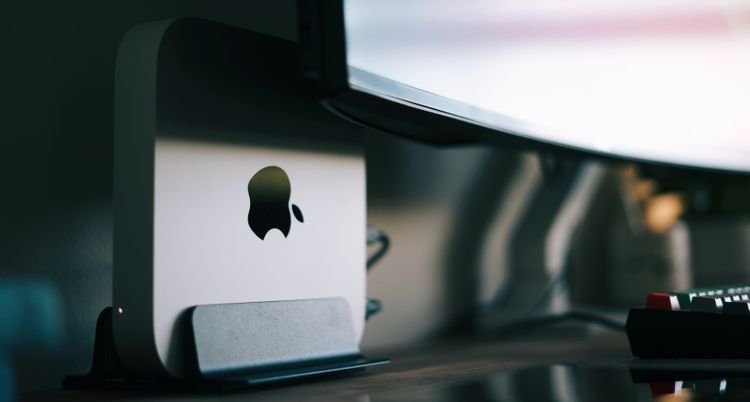
How to Buy a Mini PC That Works For You
Computers are getting smaller and more powerful with each passing year. These are the same devices that once used to take an entire room’s worth of space, but today we easily carry them around in our laptop bags.
But why stop there? Why not have something even more compact?
Those are the questions that the creators of mini PCs set out to answer years ago. So if you don’t know what a mini PC is or the advantages it offers, you’re in luck. This post will give you everything you need to know.
What Exactly is a Mini PC?
As the “mini” in the name implies, a mini PC is a revolutionary form factor that strips our computers of all the bulk and turns them into a tiny device that we can carry anywhere we want.
Don’t let the word miniature mislead you. A mini PC comes with all the components you’ll find in conventional desktop computers. A modern motherboard, processor, RAM, hard drive, and lots of connectivity ports are all included.
As far as daily usage is concerned, these tiny computers are just as good as their bulkier cousins. In fact, some advanced models like the GEEKOM Mini IT8 are so powerful that they can run intensive applications like Photoshop, Sony Vegas, and even some video games too!
Now that you know what a mini PC is, let’s talk about its advantages.
The Advantages of a Mini PC
If you’d like to buy a mini PC but aren’t sure if you should, consider the following benefits of switching to this smallest form factor:
Small and Portable
Let’s start with the obvious advantage. If you love the small size of a laptop, you’re going to love the tiny dimensions of a mini PC.
Forget about buying a bag to carry your laptop as you walk around all day. The right mini PC will be so small that it will fit right inside your pocket. For instance, the GEEKOM Mini IT8 can easily fit inside a jacket pocket.
As long as you’ve got a spare display, whether it’s the monitor in your friend’s office or the flatscreen in your living room, you can get your mini PC up and running effortlessly. Just connect it to the screen and you’ll be good to go.
Compare that to a laptop. You have to carry a keyword, trackpad, battery, and an entire screen with you all day. But with a mini PC, you’ll have to carry the essential components only.
Low Power Requirement
With small size comes a smaller energy footprint. Mini PCs can dramatically cut back on your electricity usage. This is especially true for heavy users who run intensive applications for close to a dozen hours daily, like video editors and eSports professionals.
Even if you’re not interested in saving a few units on your electricity bill, you shouldn’t underestimate the importance of this low power consumption.
Imagine a disruption in your local power grid strikes out of nowhere. You’ll be left with no option to work as your desktop computer won’t run on a UPS system for long. And that’s considering if you have a UPS system in the first place.
With a mini PC, however, you can easily have a small backup battery and use that to power your computing needs for a long time. This can be a lifesaver for professionals, especially those who love the freedom of remote work.
Affordable
You’d think that such a revolutionary form factor would cost more than conventional computers. But the truth is, a mini PC is often a lot more affordable than its bulkier counterparts.
This is made possible because the smaller size means savings in materials and labor. Plus, companies producing these modern devices often have advanced manufacturing systems to maximize savings and pass them off to consumers like yourself.
So if you want elite computing performance without an elite price tag, a branded mini PC is your best bet.
Plenty of Power
Many people think that mini PCs are too underpowered to meet their computing needs. And they’re right. Most models cannot support anything more than some light browsing and text processing.
However, it’s not all bad news. You can buy an advanced mini PC like the GEEKOM Mini IT8 to run some of the most intensive applications out there. This Intel i5-powered mini PC has enough horsepower to help you edit photos and videos, stream 4K videos, open dozens of browser tabs, and even play some video games!
In other words, a quality mini PC will give you plenty of power to do your work and have some fun too.
What You Should Know Before Buying a Mini PC
Let’s be honest. With their tiny size and portability, mini PCs are impressive machines.
So if your fingers are itching to buy your next favorite computer, we don’t blame you. But before you pull the trigger, be sure you know what you’re buying into. There are some aspects that can make or break your transition from a conventional computer to a miniature one.
What are those aspects? This post will outline everything you need to make an informed decision.
So let’s jump right in.
Make Sure It’s a Ready-to-Go Model
Did you know that there are two primary types of mini PCs?
On one hand, you’ve got the ready-to-go option that comes with everything included. That means your little computer will come with a working motherboard, processor, hard drive, and RAM. Basically, the ready-to-go models have everything you need to start using your new computer straight out of the box.
Many people don’t realize this, but there’s also a barebones option where you have to install the hard drive and RAM by yourself. In fact, you have to buy those components separately as they won’t come packed with the mini PC.
Unfortunately, many people only realize this when the package arrives and the computer fails to turn on.
So before you make a purchase, make sure you’re buying a ready-to-go mini PC. You may struggle to find supported RAM and install it by yourself if you’ve never opened a computer before.
Consider the Operating System
An operating system is a complex software that makes your computer do all the things you’re buying it for. Some common examples include Windows and Linux.
For most users, Windows is the best option as it’s the OS of choice for the vast majority of the population. It’s easy to use and comes with a host of features to make your life comfortable. But the only problem is that many mini PCs don’t come with a Windows license. That means you’ll have to pay a steep licensing price and deal with the trouble of setting everything up by yourself.
So unless you’re a tech enthusiast and willing to put up with the clunky interface of Linux, you should only buy a mini PC that comes with the latest Windows OS.
It’s also worth noting that you can’t run software on Linux that was made for Windows—which is especially concerning since the vast majority of software is made exclusive for Windows.
Check the Ports
At the bare minimum, you need a few USB ports to connect your peripherals and HDMI to connect your monitor/TV screen.
Make sure your mini PC has USB 3.2 ports as the speed will be too slow otherwise. If you want to connect multiple displays, like having a dual-monitor setup for multitasking, you’ll need multiple HDMI ports.
Some mini PCs also support SD cards so you can copy data to and from these external storage devices without having to buy an adapter.
Know Your Power Requirements
This is perhaps the most important aspect to consider when you’re looking to buy a mini PC. That’s because if you buy an underpowered machine, you’ll be stuck in an endless loop of loading screens.
Most mini PCs are incapable of heavy computing like photo editing and gaming. Even streaming high-quality videos can be excruciatingly slow if you don’t pick the right device.
That’s why you should pay special attention to the specifications of a mini PC before placing the order. The best option is to buy a device that comes with an i5 processor that’s no older than a few generations.
Apart from the processor, you should also make sure that your mini PC has 8 GB or more of DDR4 RAM and an SSD storage option too. The SSD matters because it will instantly cut your PC boot and application loading time by a lot. We’ve seen boot time go from over a minute to mere seconds after installing an SSD alone.




I’ve been taking buy cbd oil concerning a while instantly, and they’ve honestly been a game-changer looking for highlight and sleep. The excellent part? No grogginess in the morning unbiased a calm, relaxed feeling up front bed. Plus, they have knowledge of great, unlike some other supplements I’ve tried. I was skeptical at beginning, but after devotedly using them, I can decidedly whisper they help with unwinding after a great day. If you’re looking in the interest of a reasonable means to deject without any preternatural side effects, CBD gummies are significance trying. Principled provoke sure you get a grade stamp with third-party testing!